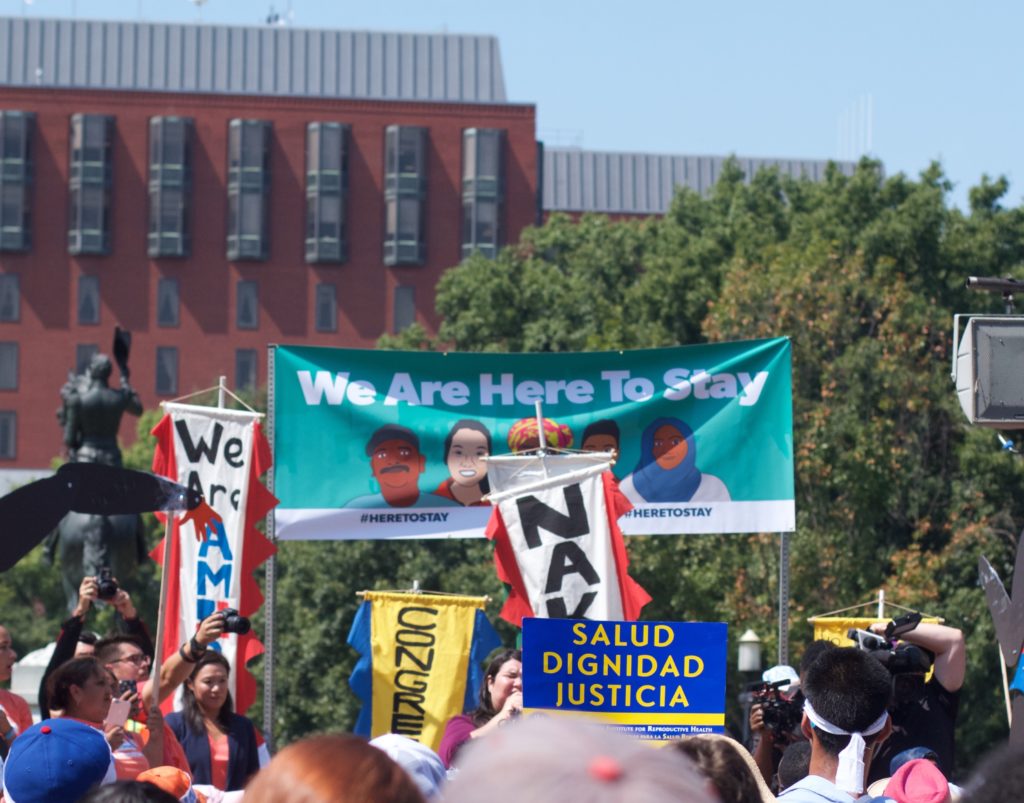Written by Margie Delao
As history has proven, natural disasters and health crises will disproportionately affect socially and economically underprivileged communities. During Hurricane Katrina, low income and African American communities  were affected by the hurricane at astronomical rates. The HIV/AIDS epidemic swept through marginalized minority LGBTQ+ communities, further exacerbating rampant discrimination against those testing positive for the disease. In both cases, the government failed to act with urgent and sweeping policy to combat the Katrina fallout and the HIV/AIDS epidemics. As a result, minority communities paid the price. Just as much can be said regarding the novel coronavirus pandemic. As the days, hours, and minutes wear on, the U.S. government’s directives on social distancing and economic relief packages flurry onto media outlets, overtaking the country in a snowstorm of breaking news. The coronavirus will no doubt affect millions, but it is evident that the pandemic will be especially disastrous for immigrant communities. That said, what actions is the federal government taking to provide protection for immigrants, especially for those in ICE detention centers? With a proven track record of racist and discriminatory policies against immigrants, it is no surprise that President Trump is doing little to protect immigrant communities during the pandemic.
were affected by the hurricane at astronomical rates. The HIV/AIDS epidemic swept through marginalized minority LGBTQ+ communities, further exacerbating rampant discrimination against those testing positive for the disease. In both cases, the government failed to act with urgent and sweeping policy to combat the Katrina fallout and the HIV/AIDS epidemics. As a result, minority communities paid the price. Just as much can be said regarding the novel coronavirus pandemic. As the days, hours, and minutes wear on, the U.S. government’s directives on social distancing and economic relief packages flurry onto media outlets, overtaking the country in a snowstorm of breaking news. The coronavirus will no doubt affect millions, but it is evident that the pandemic will be especially disastrous for immigrant communities. That said, what actions is the federal government taking to provide protection for immigrants, especially for those in ICE detention centers? With a proven track record of racist and discriminatory policies against immigrants, it is no surprise that President Trump is doing little to protect immigrant communities during the pandemic.
The fear mongering and racially charged narrative that Trump developed during his campaign is deeply embedded in the policies he enacted during his presidency. Trump has pushed for the building of a wall at the U.S. and Mexico border, enacted travel bans for primarily African and Muslim majority countries, and reinterpreted the Public Charge Rule by linking the naturalization approval process to an applicant’s income and reliance on certain public programs. All of Trump’s immigration policies are the result of his abhorrent xenophobic campaign promises to keep out immigrants fleeing war and conflict and obtaining citizenship. Just a couple of weeks ago, the Trump administration enacted the removal of English and Spanish CDC posters on the coronavirus from immigration courts in the midst of a pandemic. These policies only serve to leave immigrants vulnerable in their communities during the pandemic, wanting for vital, lifesaving information that their government is loath to provide them with.
The most vulnerable immigrants during this crisis are those who remain in the ICE detention centers. As the virus is known to spread quickly among large groups of individuals, those who are incarcerated are especially vulnerable, as they lack the option to socially distance themselves from others. The ACLU recently stated in their lawsuit against the U.S. Immigration and Customs Agency that ICE detention centers are notorious for inhumane, unethical, and unsanitary living conditions. If the U.S. Government does not release vulnerable immigrants from these detention centers, it runs the risk of further spreading the disease among a much more defenseless swath of the population. With the pandemic worsening, the U.S. government has rushed to “flatten the curve” and slow the virus’ spread. In conjunction with pressure from lawmakers and advocates, the U.S. Citizenship and Immigration Services announced that the Public Charge Rule will not apply to any immigrants seeking testing and treatment for the coronavirus. What is especially critical to this change to the Public Charge Rule is that it will encourage immigrants to receive testing without fear of being denied a green card or citizenship.
Even with recent change in policy, how will immigrants trust the government to provide resources without future retribution amid anti-immigrant rhetoric Trump established during his campaign and through his policy initiatives? It is too early to predict whether the change in the Public Charge Rule will effectively encourage immigrants to seek out testing and treatment. Immigrants are especially vulnerable during the coronavirus pandemic. Unless the government changes the narrative on immigration policy and enacts sweeping policy to support these vulnerable communities, such as releasing immigrants in detention centers or placing a moratorium on deportation, many will contract the disease, and even die due to fear of seeking out treatment.